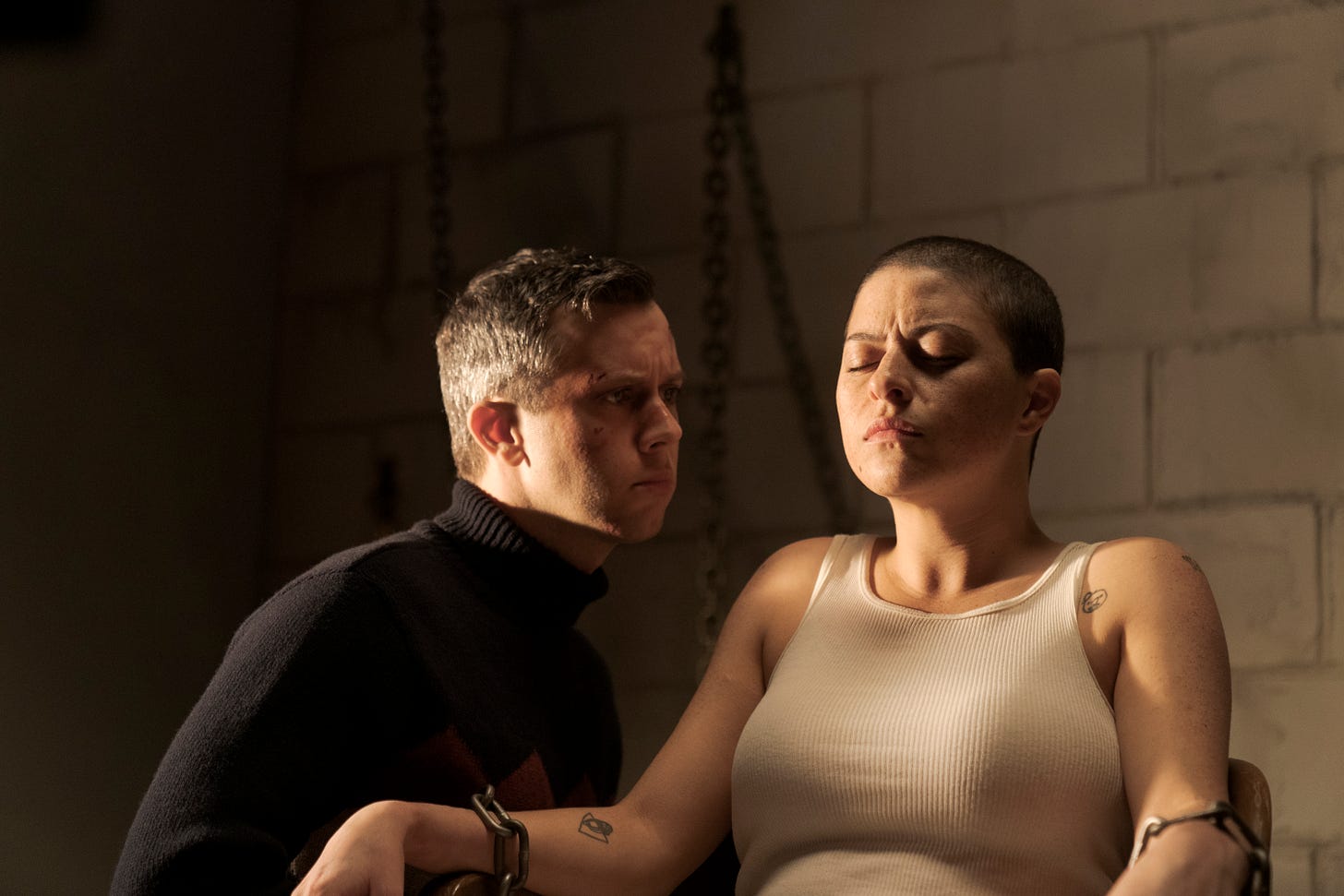“I want characters to do bad things and get away with their misdeeds. I want characters to think ugly thoughts and make ugly decisions. I want characters to make mistakes and put themselves first without apologizing for it.” – Roxanne Gay for Buzzfeed.
For three seasons, Search Party has focused on the exploits of Dory Sief (Alia Shawkat) and her entitled posse of Brooklynite millennial egomaniac besties who indeed do bad and ugly things, and for the most part, get away it. Or so they think.
Premiering in 2016 and created by Sarah-Violet Bliss, Charles Rogers and Michael Showalter, Search Party’s first season centred on Dory’s strange rescue effort for Chantal Witherbottom (Claire McNulty), a college friend she barely knew. Season two focused on the psychological aftermath of Chantal’s discovery with the third season centring on a trial of said aftermaths. Season four rushes into where season three left off.
Dory’s crazed stalker Chip (Cole Escola) has abducted her. A perverted friendship guides Chip’s motivation amidst a torrent of psychological torture. Her cell is a recreation of her Brooklyn apartment with soft surfaces and furnishings that cannot be used as weapons against her captor. In reality, she’s trapped in the basement of Chip’s wealthy absent aunt in Babyfoot, Massachusetts. He disguises himself in drag as his aunt outside of the house (side note: Chip’s drag bears an uncanny resemblance to Siobhan Fallon Hogan) and holds Dory hostage for months. Drew, Portia and Elliott are left with a goodbye letter written by Chip resulting in a drunk night of lamentation towards Dory.
Search Party’s shifting thematic tone has varied in genre from mystery (season one) to psychological introspection (season two) to satire (season three). Season four marks a divergence into a darker abduction thriller, complete with Daniel Wohl’s Hitchcockian score in the first episode. Dark humour persists as the main constant thematic thread running through the series.
The first half of the season drags, imitating the monotony of Dory’s imprisonment. Thankfully, the second half picks up with the vigour we’ve come to expect from the series, harking back to the mystery plotlines in season one, and most evident in episodes 7, 8 and 10.
Bliss and Rogers are back co-directing seven of the ten episodes and writing three alongside directors John Lee and Shawkat and writers Christina Lee, Emily Heller, Jordan Firstman, Matt Kriete, Andrew Pierce Fleming and Starlee Kine. Alia Shawkat makes her series directorial debut (written by Kine) in the season’s standout episode with a sole focus on the sublime Claire McNulty, who remains absent from most of the season.
Shawkat commands the screen and impresses with a showcase of psychological trauma that ventures into potential Stockholm syndrome. A meticulous plot and an intricate performance from Shawkat leave the viewer to constantly question if Dory is once again playing the victim (like she did in season three’s courtroom trial), or if she is having a personal reckoning and an emotional breakdown.
Meredith Hagner and John Early continue to deliver enjoyable comedic performances while finding tenants of truth in their caricatured roles as the heightened and deluded subplot characters. John Reynolds’ subtle performance as Drew builds on the season’s focus on identity, as he attempts and fails to build a new life away from Dory, though his character is used as a pawn in Dory’s elaborate web of lies.
Guest stars are numerous in this season, with Susan Sarandon chewing the scenery as Chip’s aunt Lylah. Sarandon takes the series into unchartered camp territory with a cat-and-mouse chase sequence that stands among the series’ best moments.
Other guest appearances include the terrific Ann Dowd as Chip’s disgruntled neighbour who becomes embroiled in Dory’s abduction, and Griffin Dunne and Deborah Rush as the sweet but sinister owners of a snack food company named Lil’ Stickies.
The existential search for identity is at the heart of Search Party, and this search has never been stronger than in the very self-referential fourth season. Chantal’s disappearance acts as our gateway into the series as we see Dory struggle with a deeper search for purpose and meaning. Season four applies this search to Drew, Portia, Elliott, even Chantal, and Dory.
Episode ten ends the season in a surreal blaze that leads to a cliff-hanger ending, prompting the obvious question: what the hell did I just watch, and will there be another season? It’s hard to imagine the intriguing series ending on this note. Season four mercifully revives its slower first-half pace to leave its viewers wanting more.
Search Party can be streamed in Australia on Stan.
Whole season screened for review.
* A fifth season has not been announced by HBO Max at time of writing.





